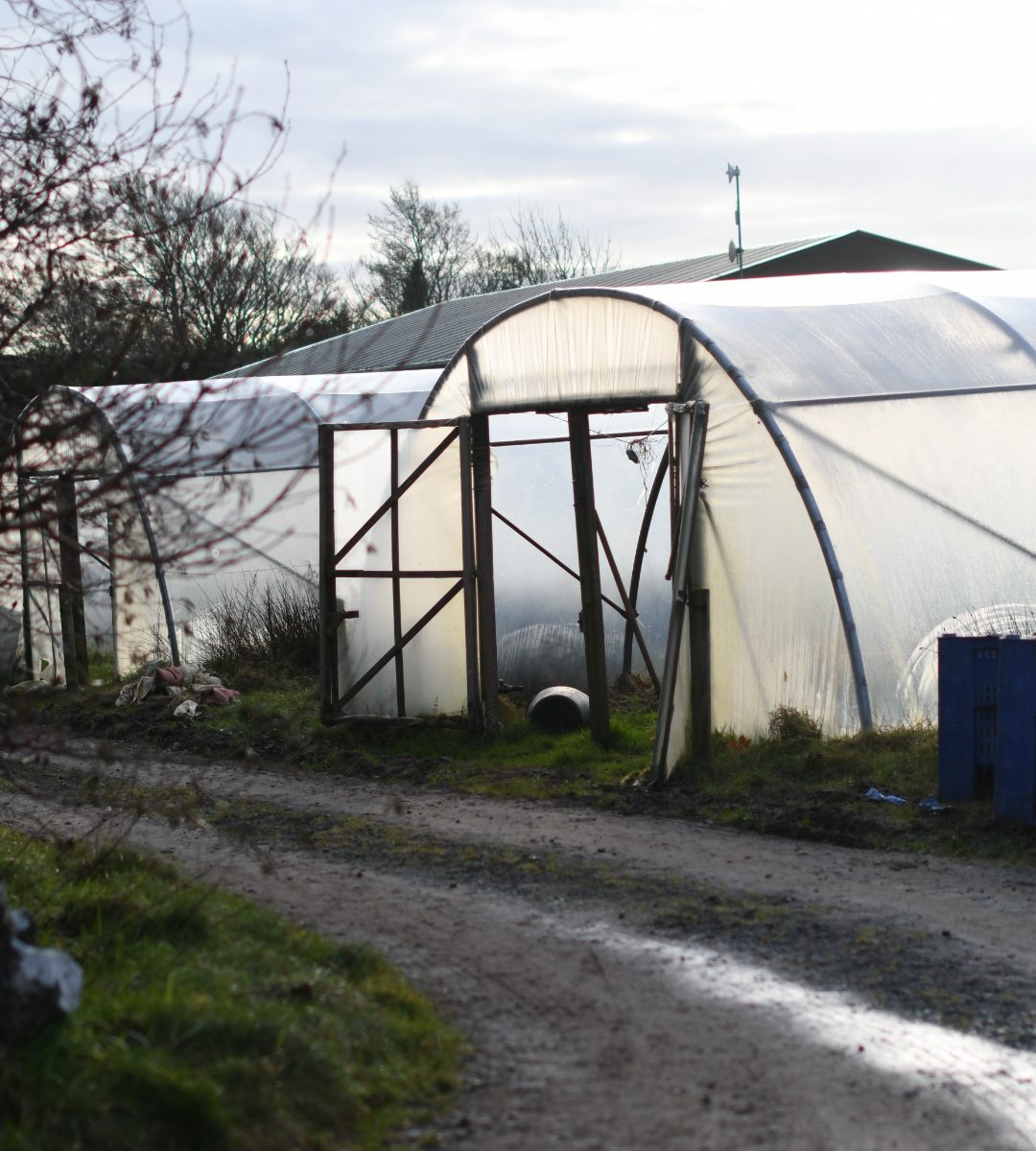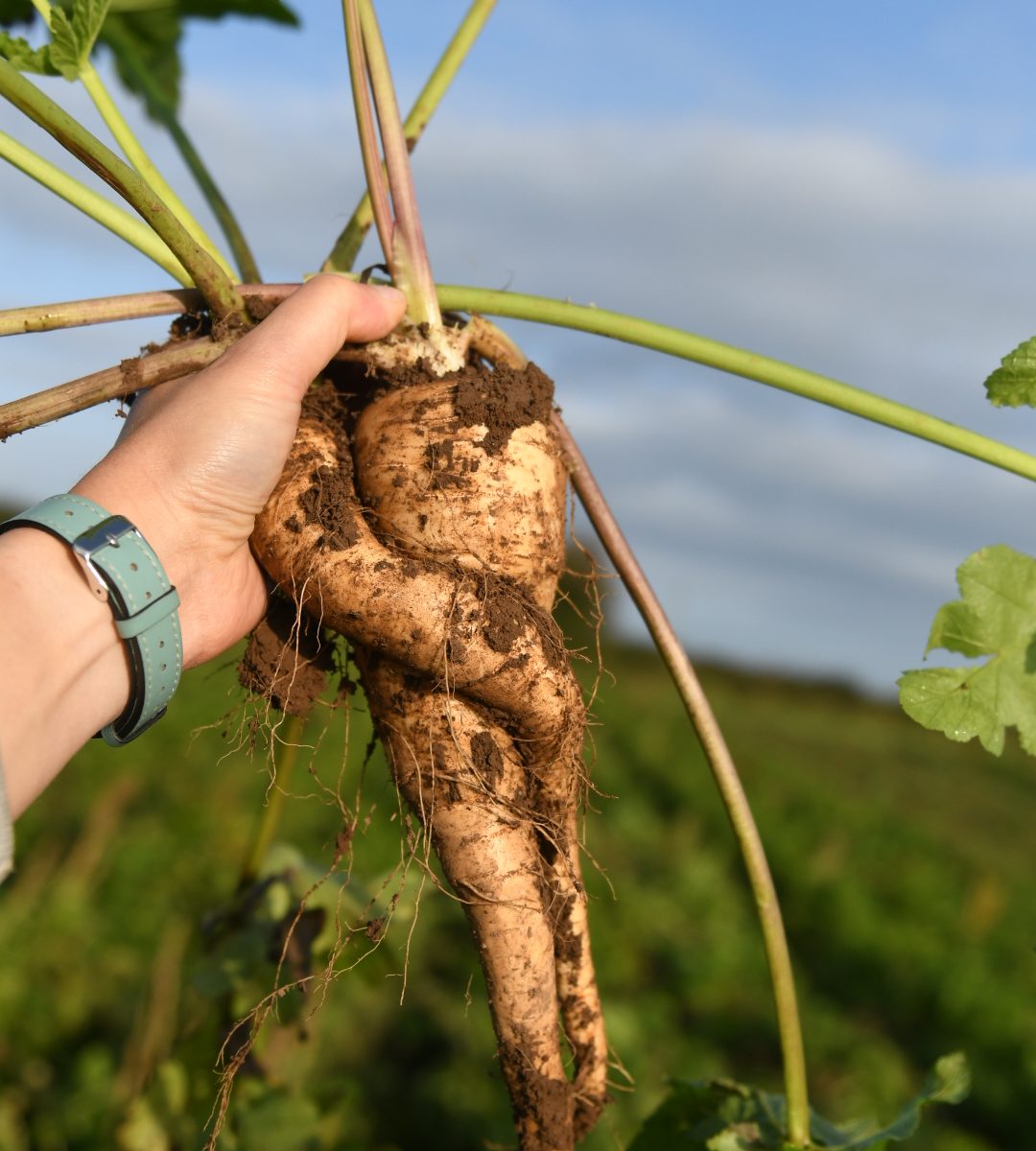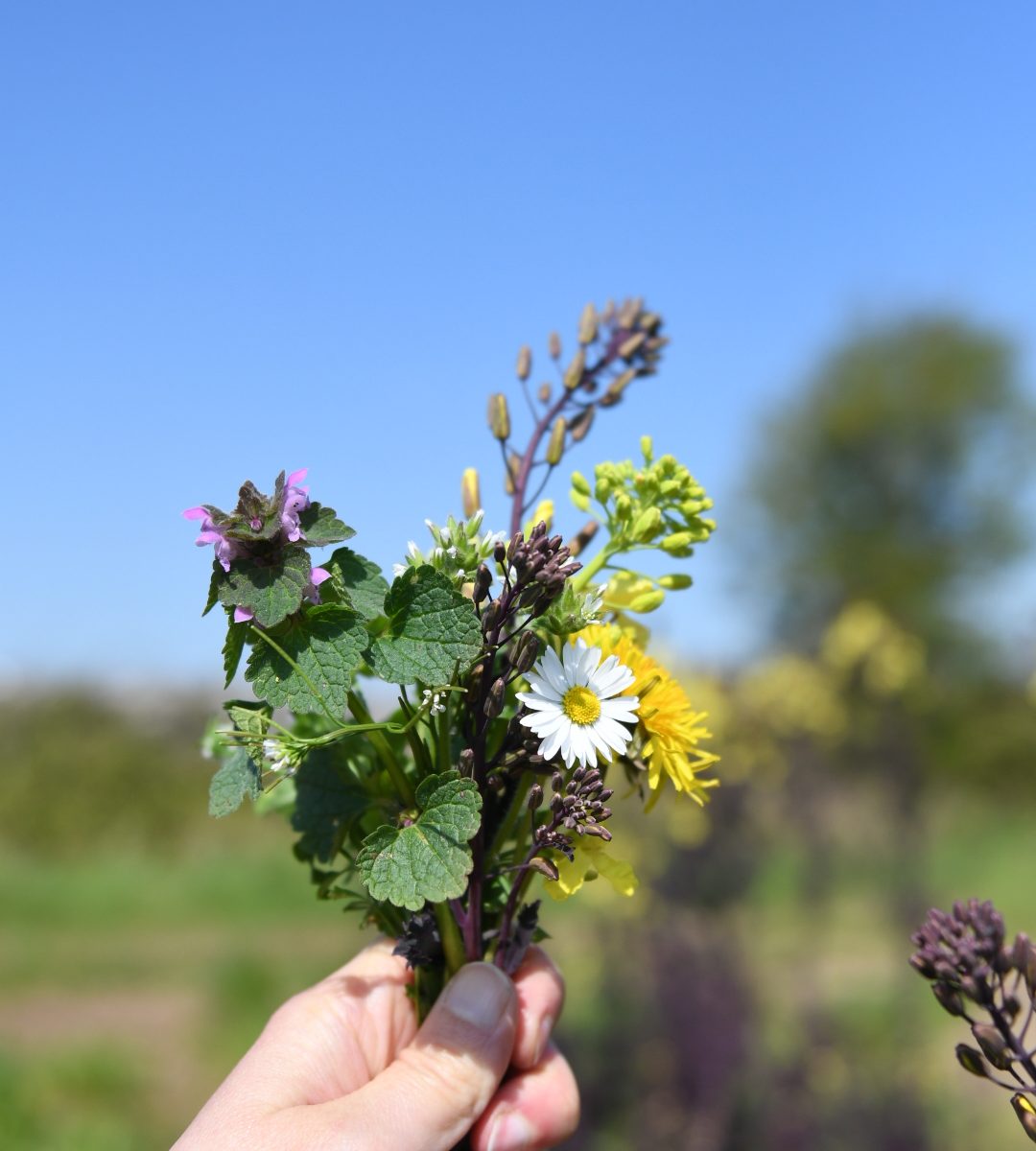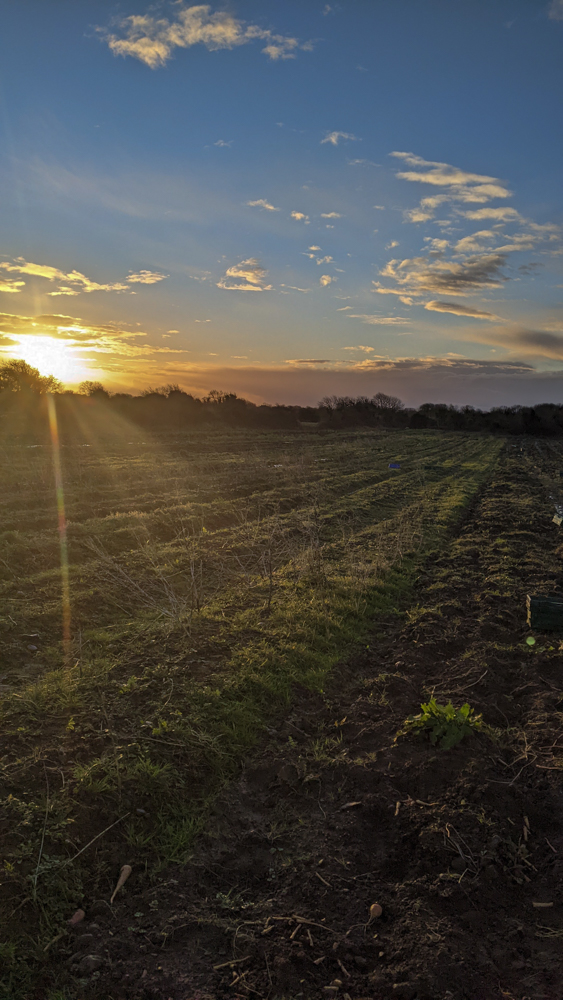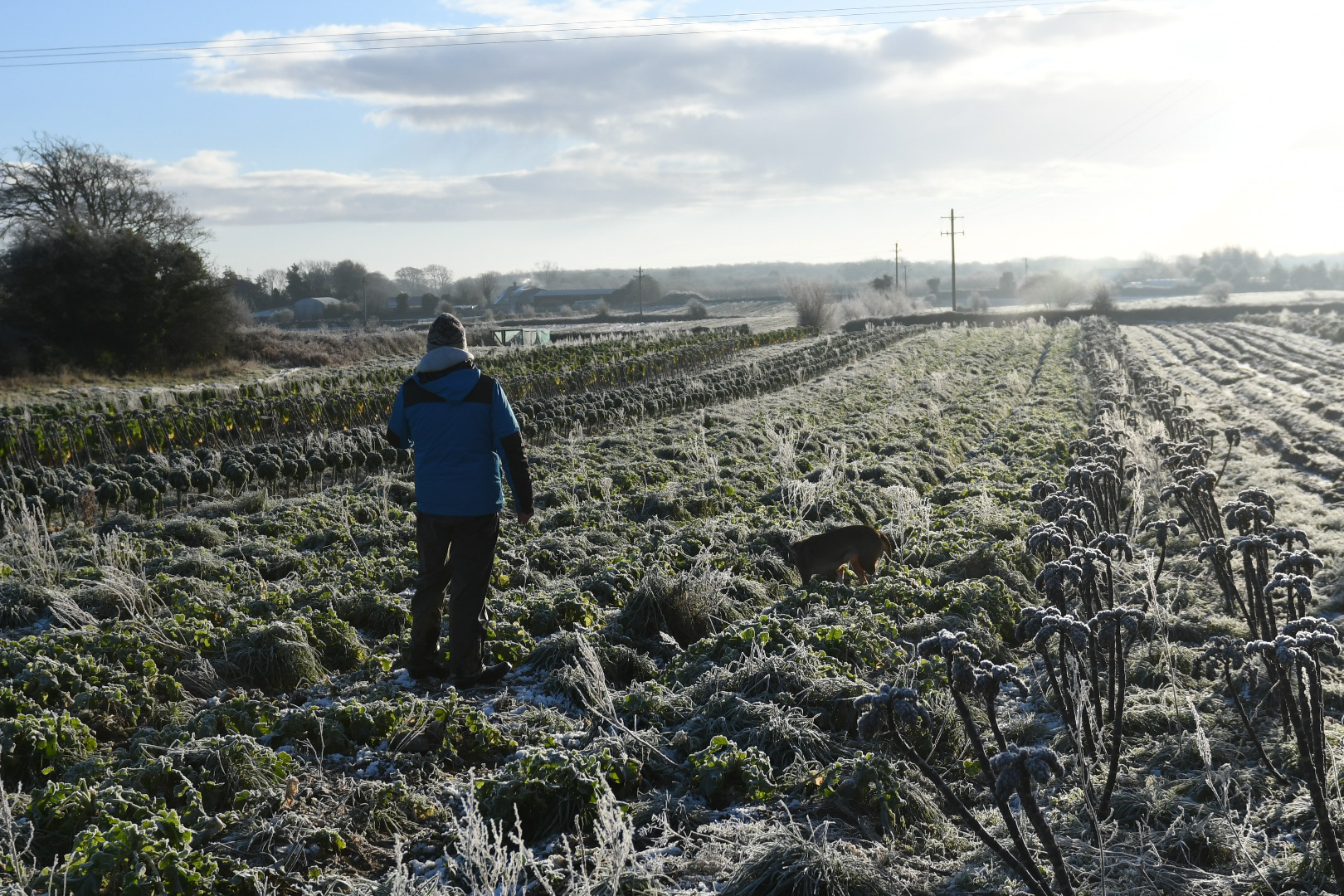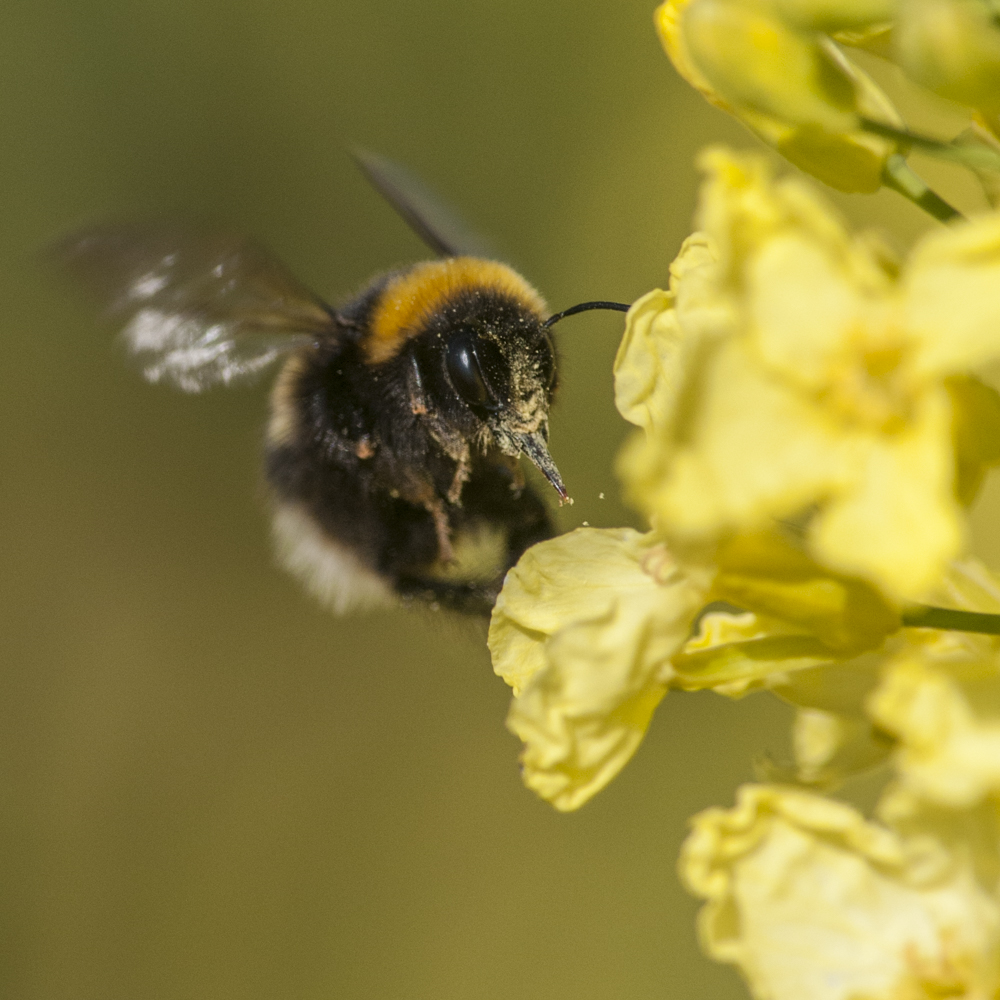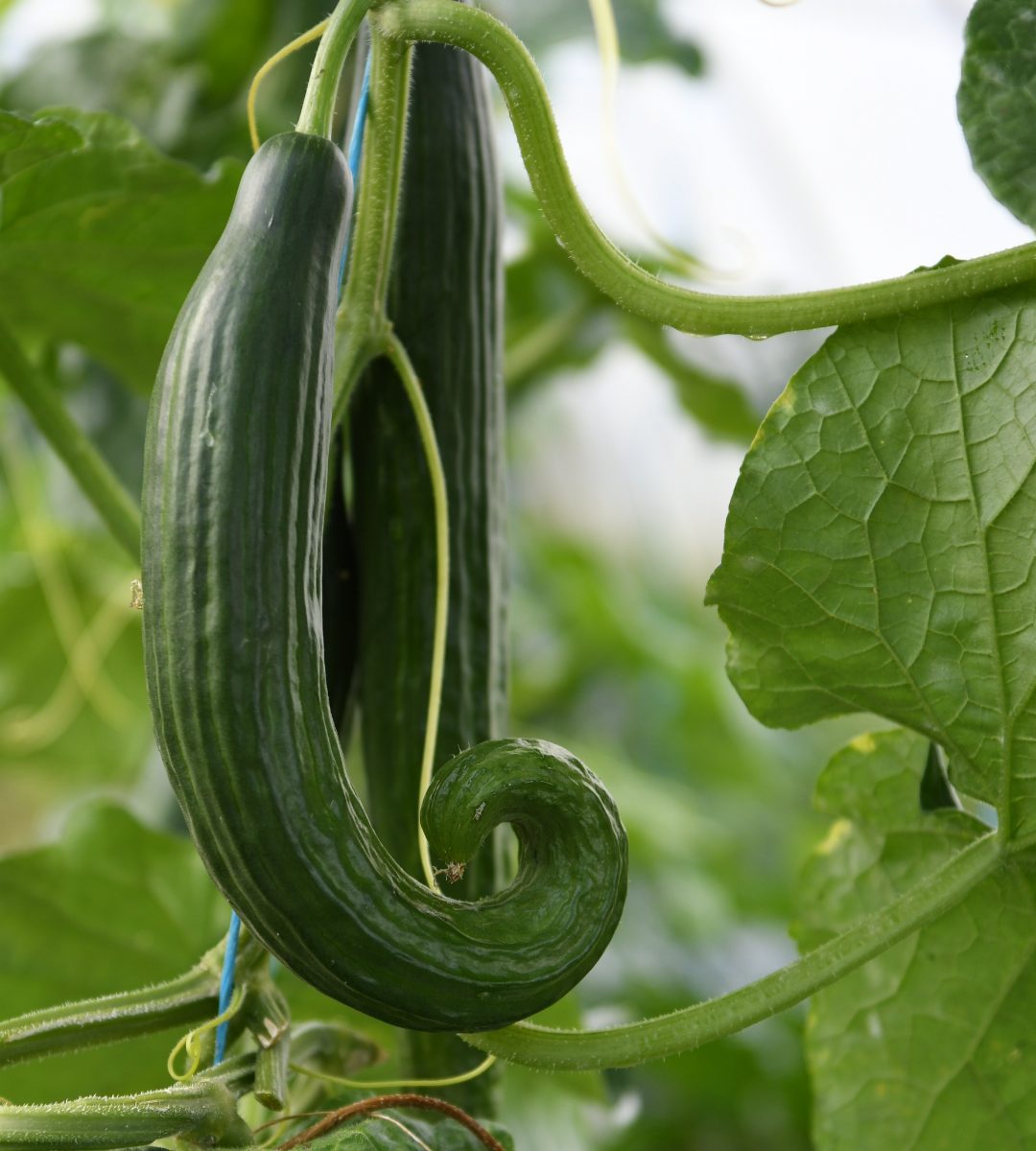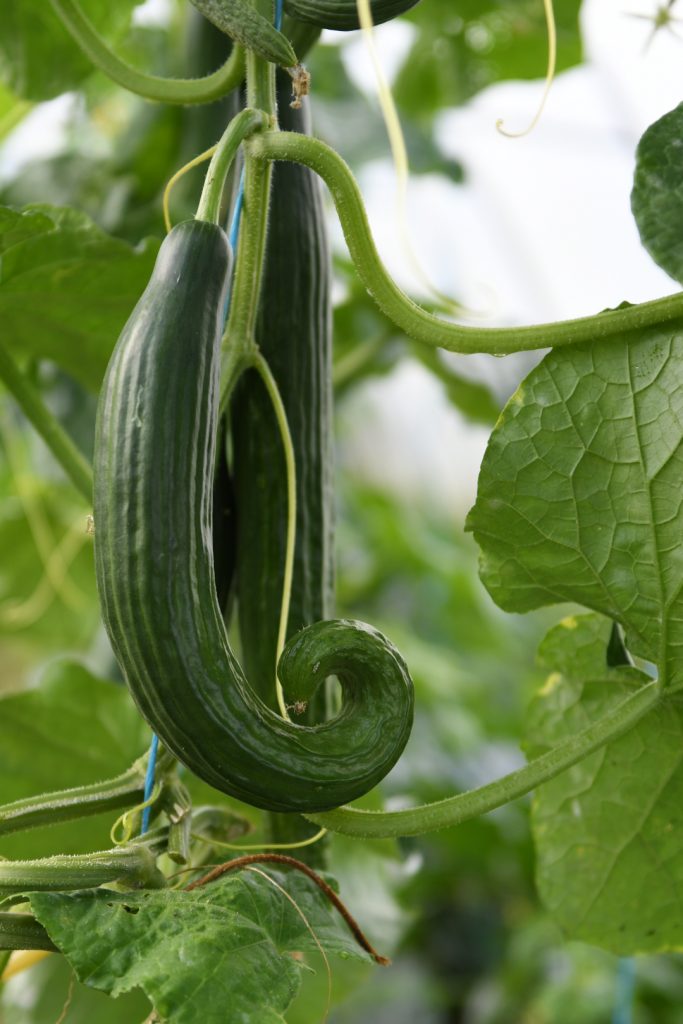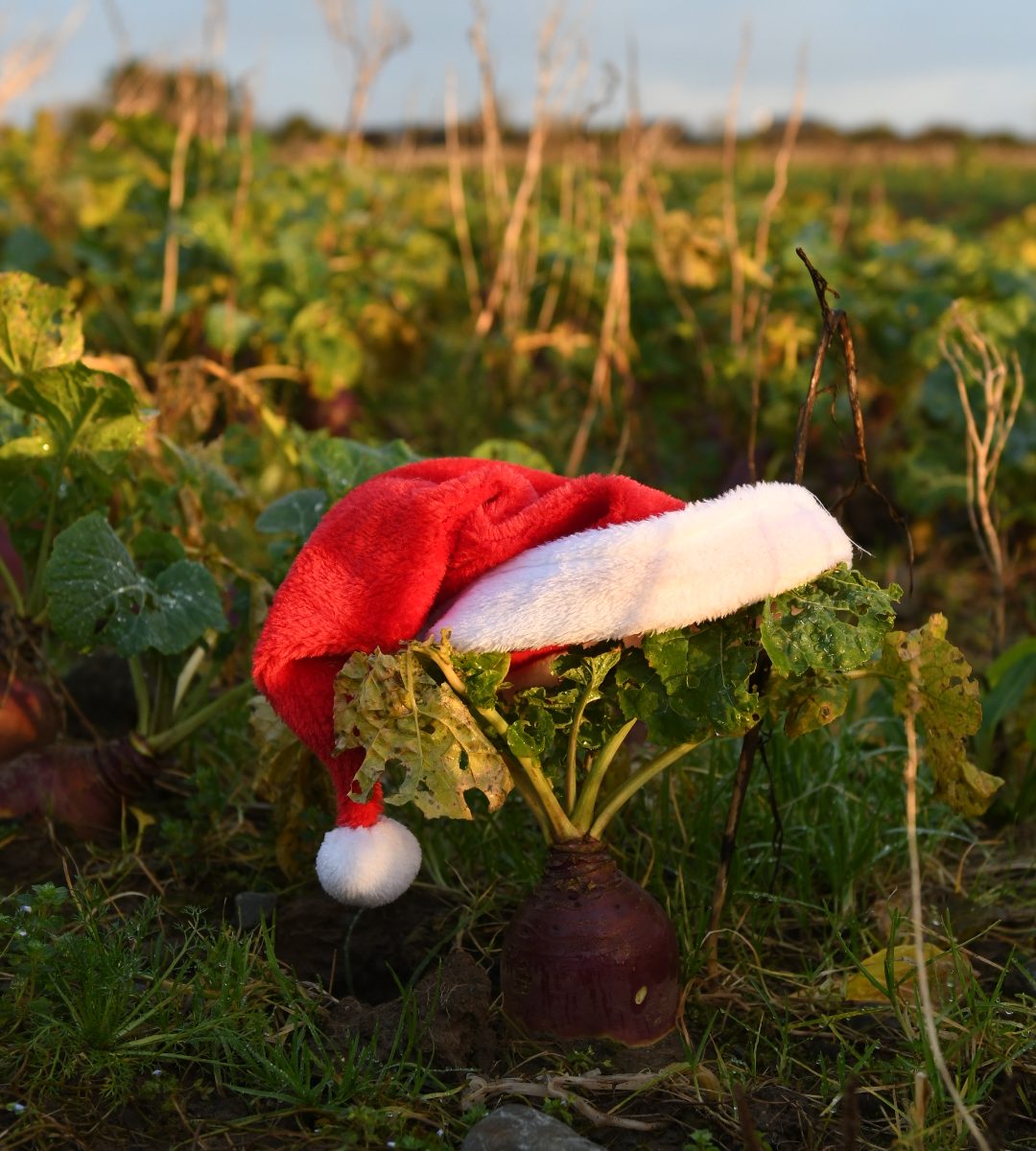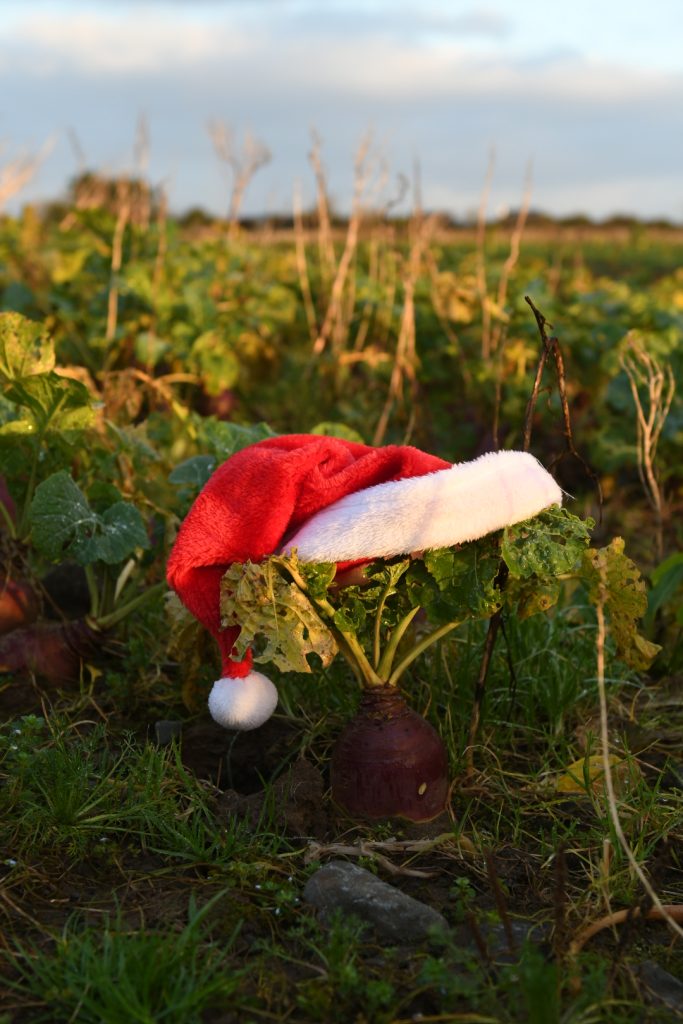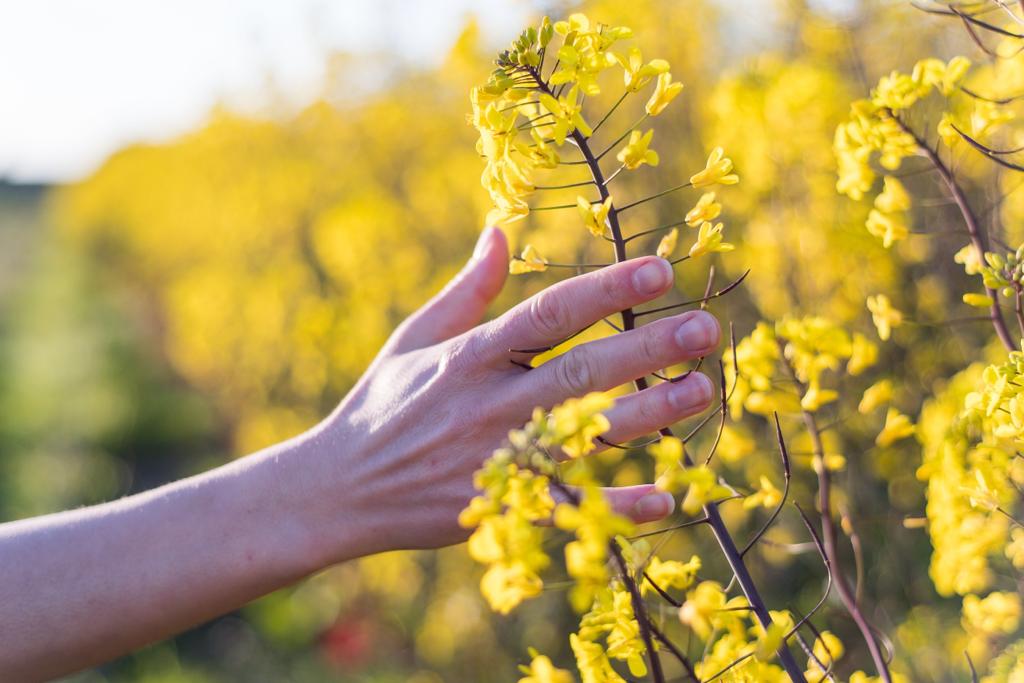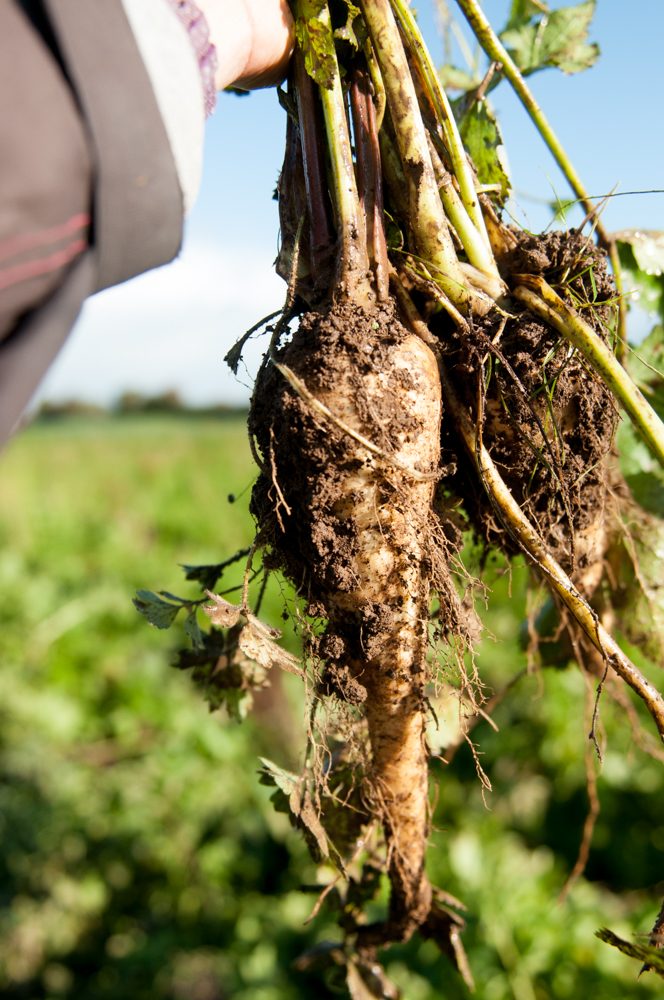January has been the warmest January on record, and the season has kicked off with spectacular ferocity. We have already lost 2 polytunnels and 14 polytunnel doors to storms, our fields are under water and there is no sign of that changing any time soon. The remaining parsnip crop is waterlogged and machine digging or any digging for that matter is impossible.
This has followed on from a 2023 which in my recent meanderings into this world of farming over the last 20 years, has been without any doubt our worst growing season. The early drought that caused poor and erratic germination of seed crops such as parsnips and carrots, was followed by excessively wet weather for the rest of the season which meant it was nearly impossible to get crops to grow and to control weeds.
I believe it was no easier for conventional growers, as their herbicides, were immediately washed off the plants they were meant to kill. Ironic that we were on a more even footing as a result of the weather for a change.
We too are blessed (and cursed, it is tremendously hard work) as we do a lot of our harvesting by hand which meant during the wet months we could continue to harvest.
But as the season wore on and we wore out, it was with much desperation that we looked to the events unfolding around the rest of the world, with wildfires and droughts making it the worst year on record for olive oil production amongst many other climate related emergencies.Last year was the warmest year on record in Ireland (and globally having breached the important 1.5C threshold each month continuously since Feb 2023) and one of the wettest. Summer saw the warmest June on record on land and at sea; the wettest July on record with 17 stations here in Ireland having over 200 per cent of their average monthly rainfall.
An “unheard of” marine heatwave – a period of persistent anomalously warm ocean temperatures – was recorded off the coast of Ireland and the UK, raising sea temperatures by a scarcely believable 4-5°C.“Johnny Ward” for the ‘Currency’ interviewed me amongst many others for an article on climate change and its impact on Irish agriculture.
His article is comprehensive and well researched and made me stop and think about what kind of future we want for ourselves and our children.
So, as we embark on another growing season, we are wondering want to expect. We know for sure we need to be smarter in our growing choices, we know we need to tackle our sowing and harvest in different ways, we know we need to drop some crops in favour of others that are more tolerant to the changing weather conditions and are more suitable to our farm. We know to expect the unexpected. We know that seasons mean very little anymore as they all blur into one long mix of wet mild windy conditions with the occasion severe drought thrown into the mix for good measure.
But as we pass the 1.5C threshold of warming (Read this recent report from the BBC) set as the critical limit by the Paris agreement in 2015 we face an uncertain future. We certainly know we must adapt and change what we grow and how we grow it and we need to do this for ourselves and also for the biodiversity we share this planet with.
With your support we will.Thank you,
Kenneth
PS: We start harvesting our own kale again next week after a break for January, and still have an amazing array of Irish organic produce, such as McArdles chestnut mushrooms, Beechlawn organic farm leeks, red cabbage and savoy cabbage, Battlemountain organic farm potatoes, Philip Dreaper’s organic beetroot and carrots, our own kale, parnsips, swede and soon purple sprouting broccoli, lovely parsley from Millhouse farm, and of course the amazing organic milk, cheese and yogurt from Mossfield organic farm and organic eggs from Butlers organic farm. You can find all our fresh Irish organic produce here.

